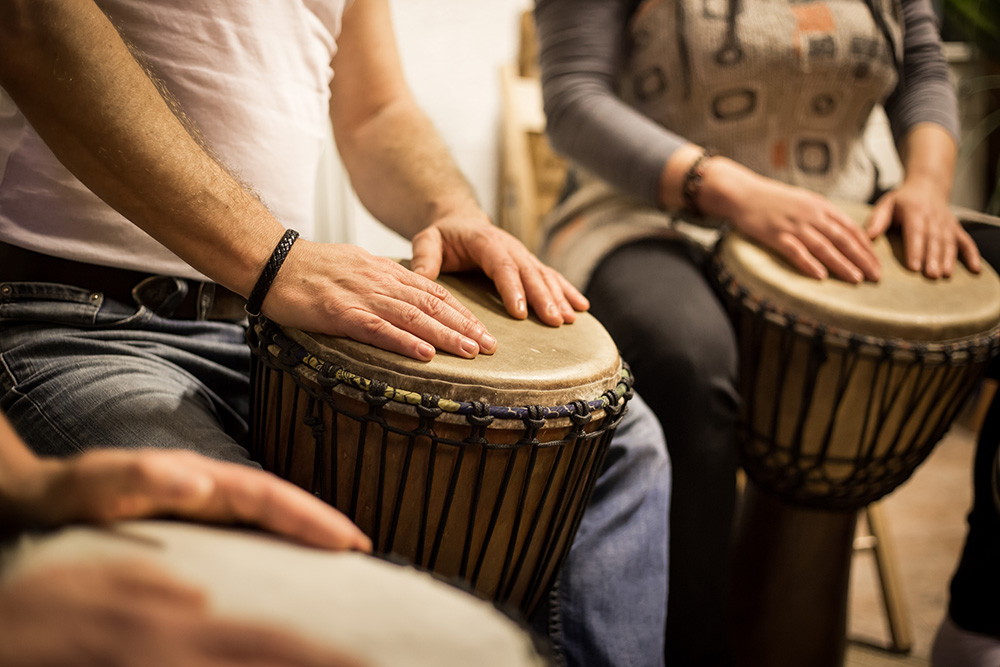For individuals that may struggle with discussing their feelings or emotions, experiential therapy offers an outlet. This form of therapy provides patients the opportunity for self-expression and active engagement without the (potentially) uncomfortable nature of the therapist’s office. Experiential therapy helps people recover more thoroughly and develop a stronger sense of self.
During the addiction treatment process, people will often learn about substance abuse and all of the negative effects that drugs and alcohol can/or did have on their lives. However, people don’t always make the connection that these negative effects are truly occurring to them. If they did, addiction education would be more than enough for most people to stop abusing drugs and alcohol. Experiential therapy for addiction treatment helps bridge this gap in addiction education.
Experiential therapy is often used in conjunction with traditional therapies, such as cognitive-behavioral therapy and group therapy. This combination of therapies can provide a well-rounded approach to treating substance abuse as well as a variety of behavioral health issues.
Experiential therapy can be used to treat a wide variety of issues within the behavioral health space. It is particularly helpful in uncovering issues related to substance abuse. Emotions related to past trauma or other underlying mental issues can be worked through.
There are many different types of experiential therapy, including art therapy, exercise therapy, adventure therapy, music therapy, and writing therapy. Each type of experiential therapy uses a different activity to help people learn about themselves and their relationships with others.
What is the Goal of Experiential Therapy?
Experiential therapies provide a way for people to safely explore their emotions and behaviors. This type of therapy can be an important part of treatment for addiction, as it can help people understand the root cause of their addiction and learn new coping skills. Individuals also have the opportunity to discover new hobbies or activities to explore further in recovery.

How is Experiential Therapy Used in Addiction Treatment?
This type of therapy can be a transformational part of treatment for substance abuse. It helps people learn more about themselves and the effect their addiction has had on their lives beyond addiction education. Since this form of therapy is so expressive people come face to face with how their own behavioral health issues have personally affected them. This can be a deeply reflective, deeply personal experience.
What are Some Types of Experiential Therapy?
Art and music therapy are experiential therapies that use the creative process to help people express themselves, cope with stress, and explore their emotions. During art or music therapy, a therapist will guide the client in creating a piece of art or playing an instrument, and then help them reflect on the experience. This type of therapy can be beneficial for people who have trouble communicating their feelings verbally.
Equine-assisted therapy (EAT) is a type of experiential therapy that uses horses to help people heal from mental and emotional disorders. EAT can be used to help people with anxiety, depression, PTSD, and other mental health conditions. The therapist will work with the client to build a relationship with the horse, and then use that relationship to help the patient work through their issues.
Guided imagery is a type of experiential therapy that uses the power of the mind to heal the body. The therapist will guide the client through a series of mental images, and help them focus on positive outcomes. Guided imagery has been shown to be helpful for people with anxiety, depression, pain, and other health conditions.
Adventure therapy is an experiential therapy that uses outdoor activities to help people heal from mental and emotional disorders. Adventure therapy can be used to help people with anxiety, depression, PTSD, and other mental health conditions. The therapist will work with the client to plan an adventure, such as hiking, camping, or rock climbing,
Recreation therapy is an experiential therapy that uses activities to help people heal from mental and emotional disorders. Recreation therapy can be used to help people with anxiety disorders, bipolar conditions, PTSD, and other behavioral health issues. The therapist will work with the client to plan an activity, such as hiking, biking, or swimming.
Psychodrama therapy is an experiential therapy that uses role-playing and other activities to help people heal from mental and emotional disorders. Psychodrama therapy can be used to help people with obsessive-compulsive disorder (OCD), trauma, or social anxiety. The therapist will work with the client to plan a psychodrama, such as a play or a skit.
Writing in a journal is an experiential therapy that can be used to help people with anxiety, depression, eating disorders, and many other mental health issues. The therapist will work with the client to plan journaling activities, such as prompts or topics to write about. Journaling can also help individuals chronicle their recovery journey.
Mindfulness meditation is an experiential therapy that can be used to help people that suffer from substance abuse, process addiction, or mental illness. The therapist will work with the client to plan mindfulness activities, such as guided meditation or breathing exercises. These can also be done in conjunction with an exercise such as yoga.
Who Can Benefit From Experiential Therapy?
What are the Benefits of Experiential Therapy?
- Develop self-awareness
- Address unresolved issues from the past
- Learn new coping skills
- Process difficult emotions
- Improve relationships
- Discover new skills and interests
Experiential therapy can also be a creative outlet that allows people to express themselves in new ways. This can be helpful for people who feel stuck in negative thought patterns or who have trouble communicating their needs.

What Happens During Experiential Therapy?
One of the main goals of experiential therapy is to help people connect with their emotions. This can be done by exploring past traumas or current stressors in a safe and supportive environment. experiential therapy can also teach people healthy coping skills that can be used in everyday life. Addiction treatment programs encourage individuals to continue engaging in experiential therapy types after leaving treatment to help them in recovery.
How is Experiential Therapy Used in Conjunction with Traditional Therapy?
Experiential therapies can also complement medical treatments such as medication. For example, someone who is taking medication for anxiety may still benefit from learning healthy coping skills through experiential therapy.

















